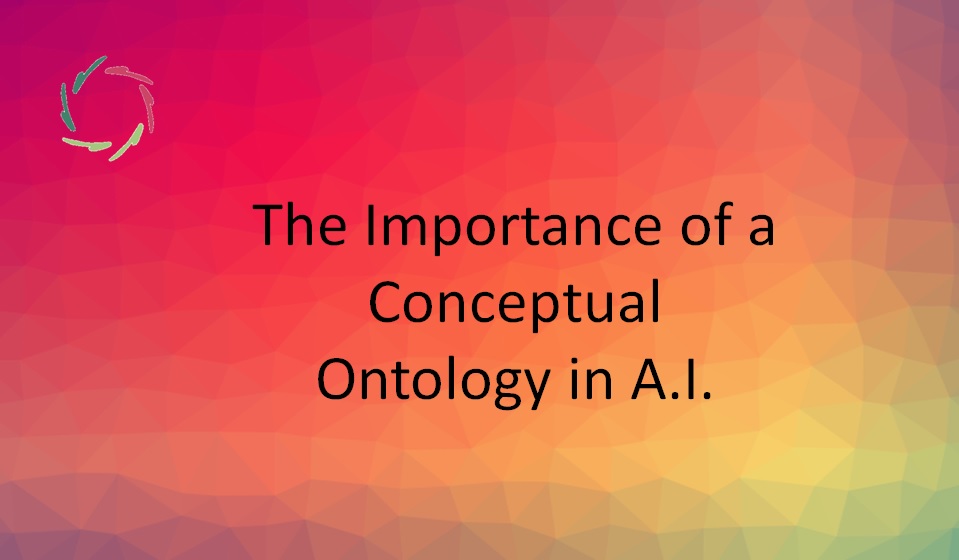The Importance of a Conceptual Ontology in A.I.

Utilizing a conceptual ontology can significantly boost an A.I.’s capability to ‘reason’ and deliver more precise, context-aware, and coherent responses that meet user needs and expectations.
This blog is an enumeration of how this enhancement works out, with examples in the domain of Lisa.
Improved understanding of a user query
An ontology enables the system to better comprehend the context of a query by recognizing the interconnections among various concepts.
Example: If a user asks about finding balance, Lisa can use the ontology to better understand that this might relate to several interconnected concepts such as work-life balance, stress management, and personal well-being. By recognizing these connections, Lisa can provide a more comprehensive and context-aware response that addresses various facets of the user’s intent.
Structured background knowledge
A conceptual ontology provides a structured framework of knowledge, enabling the system to understand the relationships between different concepts. This aids in structuring information more efficiently and retrieving pertinent details as needed.
Example: Lisa’s knowledge base is organized with structured ontology-like frameworks, such as the AURELIS philosophy and principles. This structure helps to quickly access and connect relevant pieces of information to answer questions about, for instance, subconceptual processing.
Structured memory storage
Ontologies provide a structured framework that helps organize information efficiently. This means the AI can store and retrieve details from past sessions more effectively.
Example 1: if a user previously discussed work-life balance, Lisa can quickly access relevant past conversations and integrate that knowledge into new interactions, providing a more contextually aware experience for users over multiple sessions.
Example 2: For a user base discussing a common theme like stress management, Lisa can identify general patterns and trends, offering insights and suggestions that benefit the collective user group while still personalizing responses for each individual.
Enhanced semantic processing
Ontologies enrich semantic processing by clarifying the meaning of terms and their interconnections. This allows the system to generate more meaningful responses.
Example: When interpreting terms like “Compassion” and “Inner Strength,” Lisa can generate more meaningful responses by understanding their definitions and how they interconnect within the context of AURELIS principles.
Disambiguation
Ontologies help in resolving ambiguities by providing clear definitions and relationships. When a term has multiple meanings, the ontology can steer the system toward the correct interpretation using context.
Example: If a user asks about “stress,” Lisa can disambiguate whether they are referring to psychological stress or physical stress by examining the context of the query.
Consistency and coherence
Using an ontology ensures consistency in responses, as the structured knowledge base prevents contradictory information ― crucial for building trust and reliability.
Example: Lisa’s responses maintain consistency because they are based on a structured ontology-like knowledge base ― for instance, when discussing autosuggestion.
Dynamic new knowledge integration
Ontologies facilitate the smooth incorporation of new knowledge (concepts and relationships) into an existing framework, enhancing overall intelligence.
Example: New concepts, like recent developments in neurocognitive science, can be seamlessly integrated into Lisa’s existing knowledge framework.
Complex queries handling
For complex queries involving multiple interconnected concepts, an ontology provides a roadmap for understanding and responding accurately, ensuring all relevant aspects are considered.
Example: For a complex query about the relationship between meditation and mental health, an ontology helps Lisa understand and respond by considering all relevant aspects such as psychological benefits, neurobiological effects, and AURELIS perspectives on meditation.
Personalization of responses
By using a conceptual ontology, an A.I. can better personalize its responses to individual users. This involves understanding the user’s specific context, preferences, and history of interactions to tailor responses that are more relevant and meaningful to them.
Example: When a user frequently discusses topics related to mindfulness and stress relief, Lisa can recognize these preferences and provide more personalized suggestions and information, such as specific AURELIS sessions on meditation or stress management. This personalization can make the interaction more engaging and effective.
Enhanced emotional intelligence
A conceptual ontology can help an AI better understand and respond to the emotional nuances of user interactions. By defining and interrelating concepts related to emotions, empathy, and psychological states, the A.I. can more accurately interpret the user’s emotional context and provide more compassionate and supportive responses.
Example: When a user expresses feelings of anxiety, Lisa can recognize the emotional context and provide responses that are empathetic and supportive, drawing on relevant AURELIS principles and techniques for anxiety relief.
Facilitating multi-modal integration
A conceptual ontology can help an A.I. integrate information from multiple sources and modalities, such as text, speech, and images. By understanding the relationships between concepts across different forms of data, the A.I. can provide more comprehensive and coherent responses.
Example: If a user engages with Lisa through a combination of written queries, spoken interactions, and visual inputs (such as diagrams or images related to health), Lisa can use the ontology to unify these inputs into a coherent understanding.


